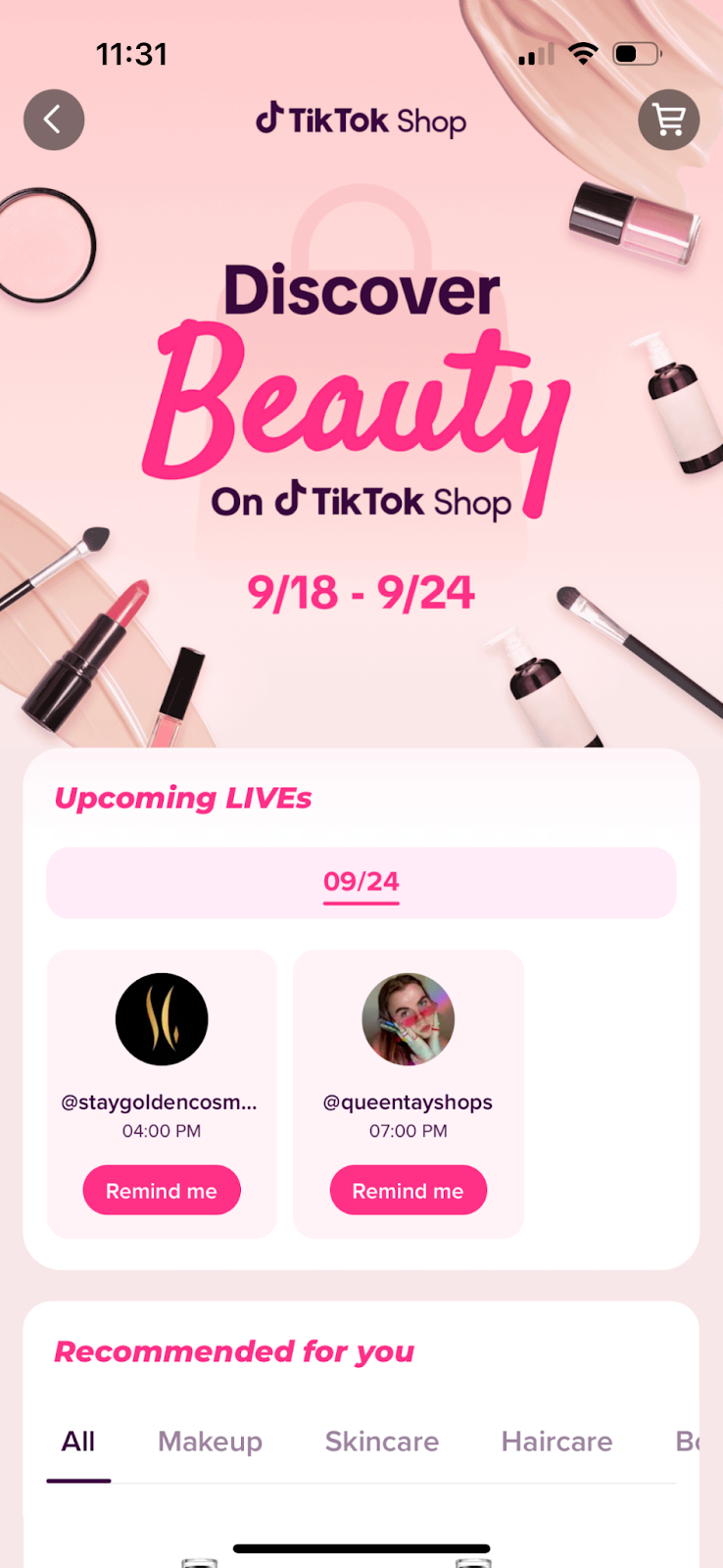
In a significant development for the world of eCommerce, TikTok recently unveiled TikTok Shop in the United States.
This new feature allows virtually anyone — from established brands like Hershey's to individuals with a passion for selling — to set up their own store on TikTok and market their products, with a portion of the sales going to TikTok itself. While this may sound reminiscent of Amazon's marketplace or eBay, TikTok Shop brings its own unique twist to the world of online commerce. In this blog post, we'll explore both the advantages and potential pitfalls of TikTok Shop and why it's imperative for brands to pay attention to this emerging platform.
TikTok boasts over 50 million daily active users, with a remarkable 18.68% of all Americans with mobile internet logging in daily. This immense reach offers brands a chance to capture the attention of potential customers. Moreover, Profitero’s Digitally-Influenced Shopper research reveals that one out of three U.S. shoppers will make a purchase after seeing a product on social media.

Products that go viral on TikTok often experience sales spikes on Amazon, making it a compelling platform for immediate conversions.
TikTok has become a Gen Z stronghold, surpassing traditional media like TV in terms of daily engagement. This younger demographic is more likely to discover new products on social media as opposed to search engines, presenting a unique opportunity for lesser-known brands to establish themselves and engage with Gen Z consumers on TikTok Shop.

With the cost-per-click (CPC) on Amazon rising steeply, TikTok Shop offers a less competitive landscape for advertising. The Affiliate Marketplace within TikTok Shop enables brands to advertise products based on referral sales, ensuring they only pay when a sale is made. Savvy brands can assemble a team of affiliate content creators to drive organic traffic, reducing advertising costs. TikTok will be eager to get new sellers on the platform and will keep commission fees low relative to Amazon.
We don’t know how TikTok's search algorithms work, but we can assume that, like Amazon, it factors in various elements, including sales history, reviews, and click share, and possibly even affiliate-related factors like content creators promoting the product. Brands that establish a strong presence early on may rank higher in organic searches, a challenging feat on Amazon with well-established products.
Unlike Amazon, which struggles to incorporate user-generated content into its shopping experience, TikTok Shop thrives on user-generated content. It seamlessly pairs content creators with brands and products, offering a more engaging and interactive shopping experience.
In one example, I was searching for protein powder products. I clicked on Muscle Milk in the search results and was taken to a product page with a creator video playing in the background that was endorsing the product. This is a shopping experience that puts user-generated content (vs. brand-generated content) in the foreground. It’s not what you say, but what others say that counts.
TikTok will steal a page from Amazon's playbook and have its own Prime Day deal events and other themed tentpole events. In this example below, you can see an upcoming beauty shopping event. These events will generate a ton of organic awareness for products and brands that participate and there’s value in being a first mover.

TikTok Shop provides valuable insights on how many people have purchased a product, offering social proof to consumers and enabling brands to assess market trends and competitors' success.

Similar to Amazon's Marketplace or eBay, TikTok Shop allows virtually anyone to become a seller, potentially resulting in unauthorized resale of a brands’ products or even counterfeit items. Brands risk their reputation as they have limited control over how sellers choose to market their products on the platform and which video creators are being used to endorse their products. There’s also the high risk that sellers used outdated or bad content.
A considerable portion of products on TikTok Shops are manufactured by suppliers in China or Korea, many of which resemble knock-offs of American brands. This could lead to increased competition, undermining the authenticity of original products. Many Gen Z consumers have yet to establish firm brand loyalty, which means that brands may have to play on TikTok just to stay top of mind and avoid irrelevance with the valuable Gen Z buyer.
According to Bloomberg, TikTok plans to aggressively go after Amazon shoppers with discount pricing. These kinds of price wars are bad for brands because they trigger price matching algorithms to continuously compete to match the lowest price. If Amazon starts scraping TikTok for prices the way they do for Walmart and other retailers, that could mean trouble for brands as they inevitably will see average selling prices decrease, margins decrease and CRaPped out products increase. In this example below, you will see the same SentrySafe product being sold on TikTok and Amazon but the one sold on TikTok is at a significant discount that should raise eyebrows.

In the coming years, TikTok Shop will likely play a pivotal role in the eCommerce ecosystem, offering a unique space for brands to connect with consumers and influencers alike. The question you’ll need to ask yourself is, “Should our brands play on TikTok Shop now, or wait and watch?”
At Profitero, we use the following framework to advise brands on determining where to play in the eCommerce channel. Your larger partners — Amazon, Walmart, Kroger, Tesco, etc. — will all fall in the upper two boxes. TikTok will likely fall into the lower boxes for your brand, depending on how ready you are to leverage the platform and your business objectives.

If TikTok is already a strategic focus for your brands when it comes to creating video content and using influencers to reach Gen Z consumers, then experimenting with TikTok Shop is a no brainer. TikTok Shop will allow you to remove the friction of sending them somewhere else. That said, pay close attention to your Amazon traffic and sales to make sure you’re driving incremental reach on TikTok versus cannibalizing. Decreasing your Amazon traffic at the expense of TikTok could hurt your overall organic viability on Amazon, especially as we know that Amazon's search algorithm favors products with referral traffic from social media sources like TikTok.
Experimenting with TikTok Shop probably also makes sense if you have a direct-to-consumer website or already sell on Shopify or other marketplaces. TikTok Shop will only extend your reach and because it’s currently a less-crowded marketplace, you may stand out more. The important thing to keep in mind is that you need the ability to directly ship to consumers (using either your own or TikTok’s shipping providers). So brands who primarily sell using 1P models where the retailer buys, warehouses and ships products will need to build new logistics capabilities. If you’re considering switching to an Amazon 3P or hybrid model on Amazon, there’s no reason why you can’t also list your products on TikTok — provided you’re also making investments in the right video content and affiliate influencers to get it noticed. (Here’s a good Youtube video outlining how to set up a TikTok Shop.)
Even if your brand decides now is not the right time to play on TikTok, you can’t ignore it altogether. As mentioned above, there’s a lot of potential for risk with sellers and influencers promoting your brands and products in ways you might not approve of. You will also want to keep a close eye on how competitors are using the platform. So my advice is to treat TikTok as another digital shelf to monitor, just as you monitor Amazon. Search for your category keywords, brands and competitors routinely to see what products, sellers and content comes up. Better to be vigilant than blindsided.
How do you think TikTok Shop will change eCommerce for brands?
Leave your comments on my LinkedIn post.


